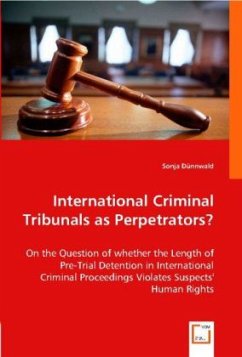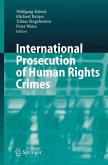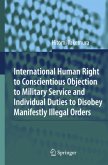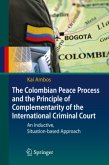International Criminal Tribunals, established to prosecute those responsible for the gravest crimes of mankind, have been subject to criticism because of prolonged periods of pre-trial detention endured by suspects. This study discusses whether the respective practice violates the human rights of those detained.The author first analyses whether and to what extent human rights apply to the proceedings of those institutions that can be categorised as being truly international. By way of giving an introduction to the relevant procedural rules, she then portrays three different phases of the pre-trial stage. She establishes corresponding human rights standards through the detailed analysis of decisions of human rights bodies. These are thoroughly compared to the protection offered by the legal frameworks and the jurisprudence of the different tribunals. This comparison elaborates on the specific circumstances in which these institutions operate- which derive from their complete dependence on states for all material aspects of their work. In a detailed section the author describes and evaluates the resulting restrictive practice relating to the granting of provisional release.
Bitte wählen Sie Ihr Anliegen aus.
Rechnungen
Retourenschein anfordern
Bestellstatus
Storno








